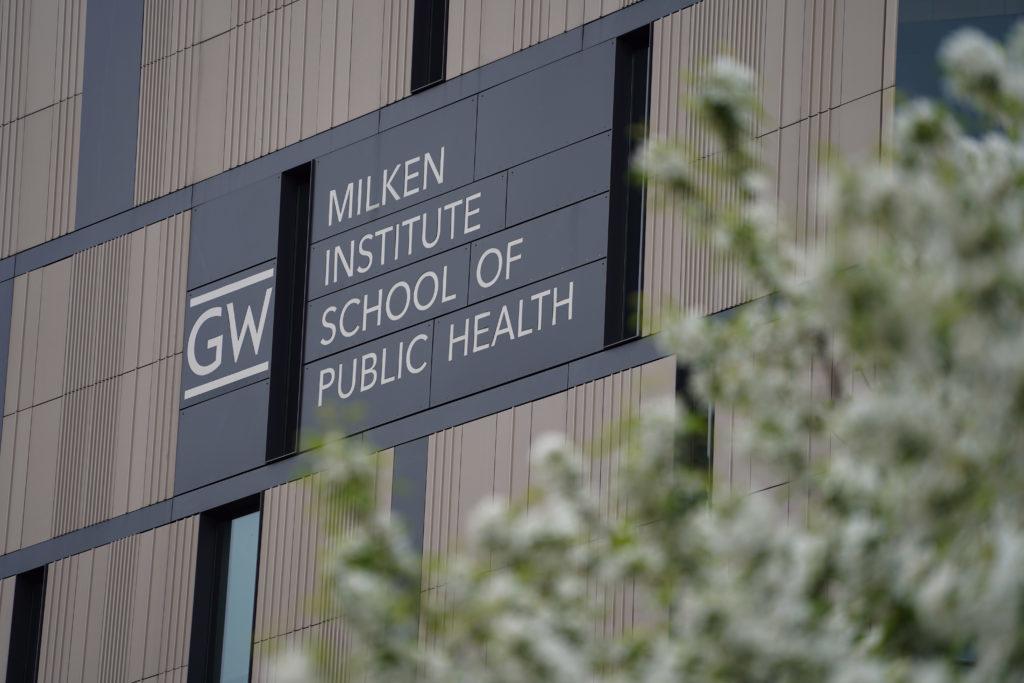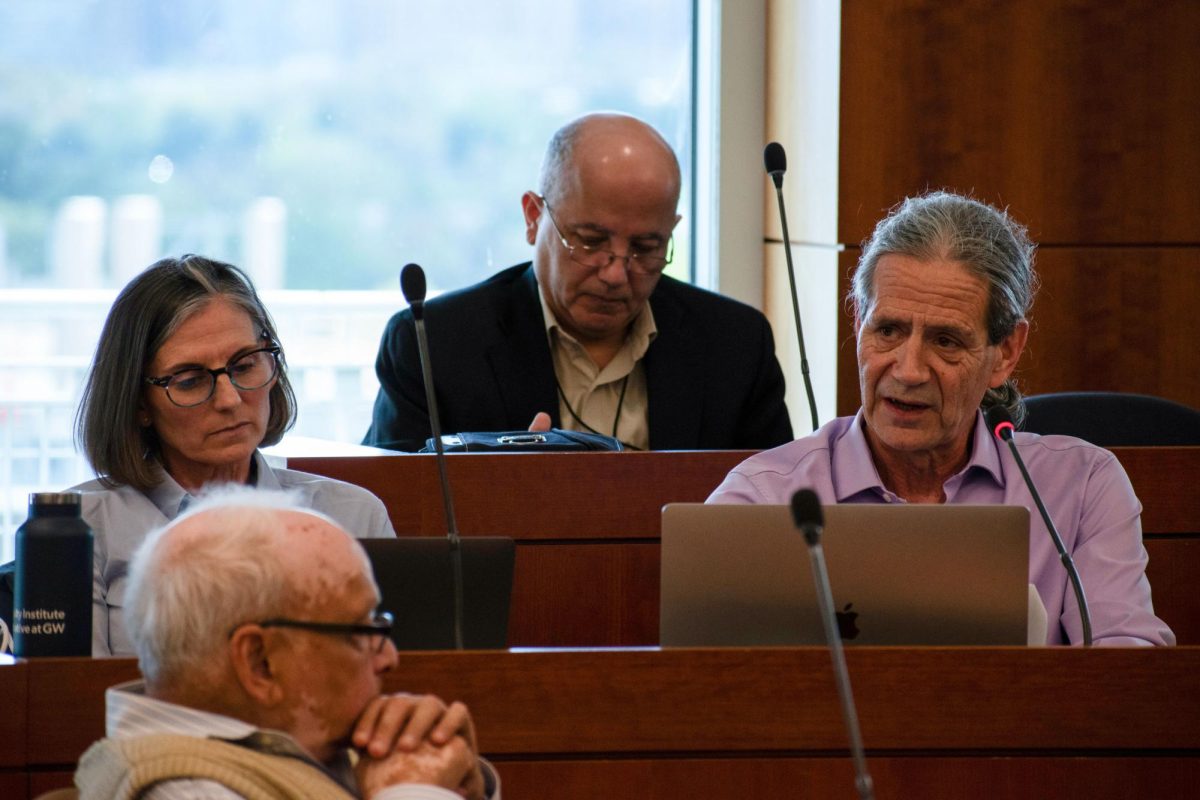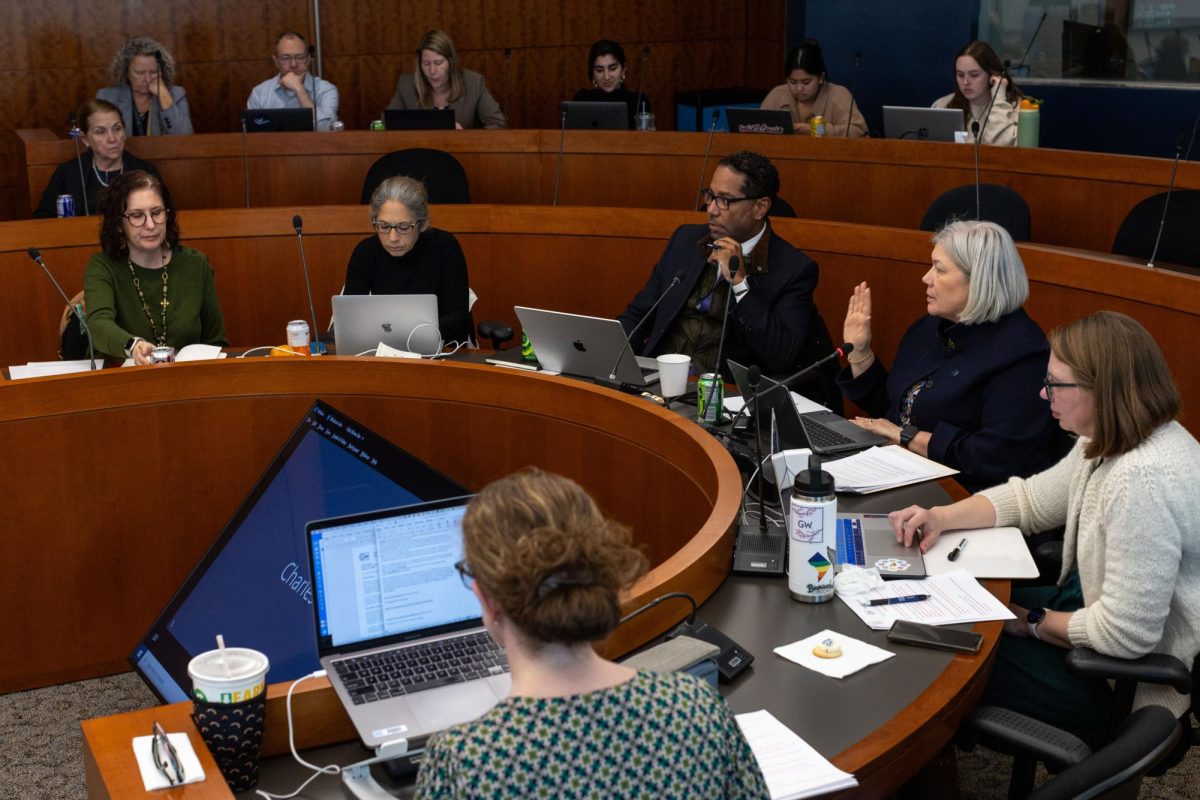Milken Institute School of Public Health officials are debuting an initiative this semester to help students succeed in classes and prepare for their future careers.
The school’s leaders are introducing the program – called T.E.A.M. Milken for its four main objectives to transition students to GW, engage them in programming, provide academic resources and pair them with mentors – to bolster “academic, professional and personal” success among undergraduates. The program will connect students with faculty and staff and hold skill workshops, public health school officials said.
Milken undergraduates are provided with personal guidance from faculty and staff, opportunities to interact with peers and workshops that offer academic assistance, according to the program’s website.
Transitioning students to college
Sara Wilensky, Milken’s assistant dean for undergraduate education, said school leaders are tackling the program’s first objective, ensuring a “smooth” transition to the school for freshmen, by hosting “academic workshops” and social events for students registered for T.E.A.M. Milken. Social events listed for freshmen and sophomores on the checklist listed on the program’s website include a mid-semester social and a peer scavenger hunt.
Students interested in the program can still sign up through a form on the program’s website and will have an introductory meeting with T.E.A.M. Milken Program Coordinator Muhammad Mehdi, an undergraduate academic adviser in the school.
Engaging with Milken programming
Wilensky said officials held the program’s first event last month – a “speed meeting” activity for students to briefly meet with and get to know faculty and staff in the school.
She added that students registered for the program need to attend three core “professional development” activities, like an internship search workshop, each semester and four additional activities, like joining the Milken Undergraduate Student Association, throughout the academic year to complete the program.
A checklist on the program’s website lists more than 10 additional activities for students to choose from to meet their yearly requirement like participating in a faculty mentor lunch and attending National Public Health Week with a T.E.A.M. Milken member.
“The program checklist includes T.E.A.M. Milken workshops and socials as well as engagement opportunities in Milken and across the University,” Wilensky said in an email.
She said officials will measure the program’s success through online surveys and will evaluate participating students’ academic progress compared to the undergraduate population at-large.
“We will send our students an anonymous survey consisting of sense of belonging and student engagement questions as well as open-ended questions regarding their experience in the program,” Wilensky said.
Academic success
Mehdi, the T.E.A.M. Milken program coordinator, said officials launched the program following a surge in undergraduate enrollment. He said the program’s workshops will be hosted by Milken’s undergraduate advisers and leaders from the Writing Center, the Himmelfarb Health Sciences Library and the Center for Career Services.
Officials are holding a writing workshop hosted by a staff member of the Writing Center and a time management workshop during October for involved students, according to the program’s website.
Wilensky, the assistant dean, said officials have also overhauled the school’s advising system to give undergraduates more individualized academic assistance by allocating students across three full-time academic advisers by last name. The new system replaces the old program-based one in which one full-time adviser handled students in the public health program and faculty advisers handled students in the exercise science program.
Mentorship
Mehdi said officials will arrange one-on-one and group meetings for faculty, staff and students in the program but added that students in the program are encouraged to reach out to faculty and staff listed on the T.E.A.M. Milken website’s directory to set up meetings.
“We will have socials and workshops to bring faculty, staff, and students into the same room and encourage conversation and building connections among them,” he said in an email.
Public health and higher education experts said the program will provide a “formalized” way for students to adjust to college and prepare to enter the workforce following graduation.
Ge Bai, an associate professor of health policy and management at Johns Hopkins University, said the program will help prepare students for their careers in public health by providing them with formal mentorships.
“The students have the need to be mentored or to be guided through a more systematic, organized way, and I think Milken is doing this,” she said. “It’s to fulfill a need among the student body.”
She said officials should work to “tailor” the program to specific demographics, like first-generation students, who might need more guidance than others.
“They might need more help to guide them through the process than students from more privileged backgrounds,” Bai said.
Rosemary Cress, an associate adjunct professor at the University of California, Davis, said programs like T.E.A.M. Milken will allow administrators to devote more attention to helping new students adjust to college life, which will contribute to better academic outcomes for undergraduates.
“I would think targeting transition would be absolutely critical,” she said. “I’m sure it has a major impact on whether students succeed in school or not.”
Roman Bobek contributed reporting.








